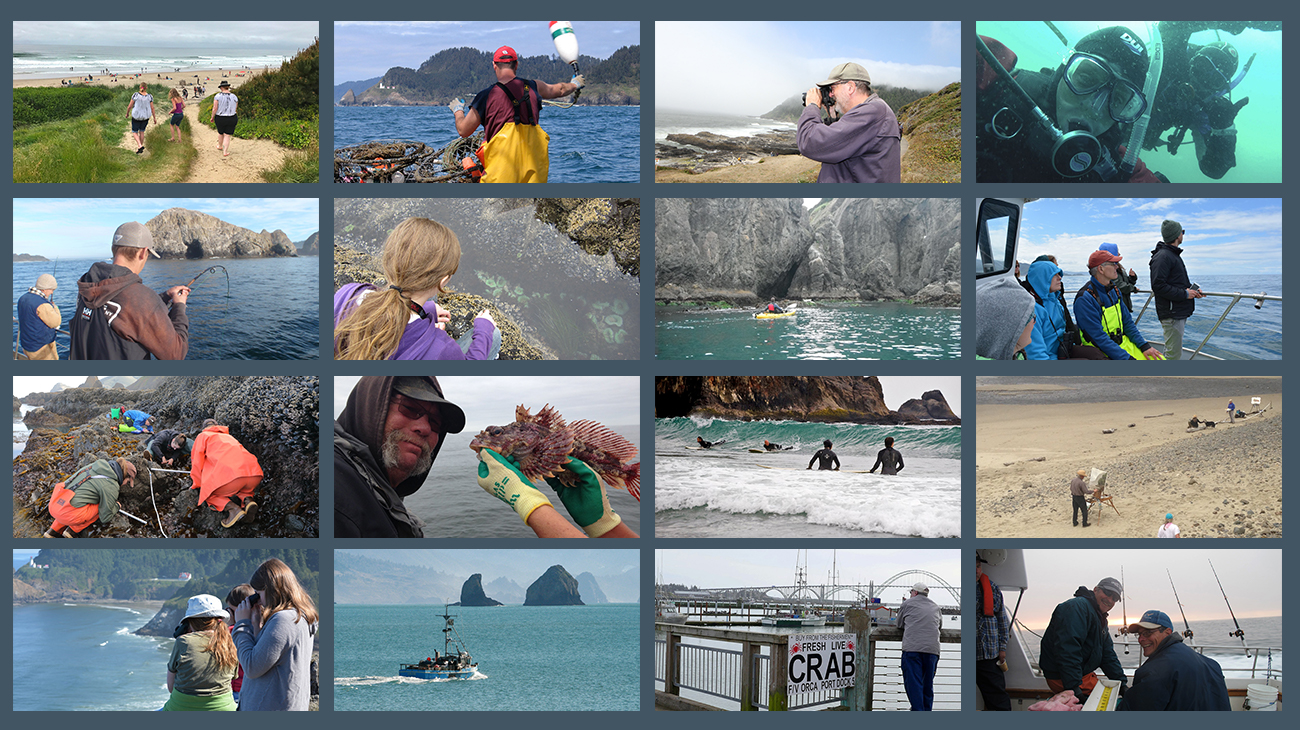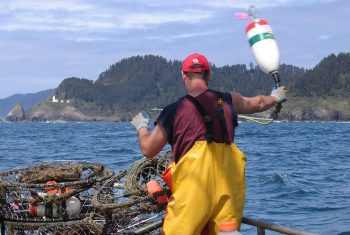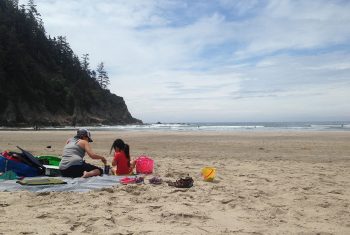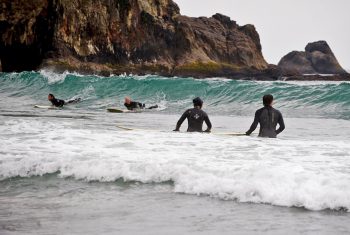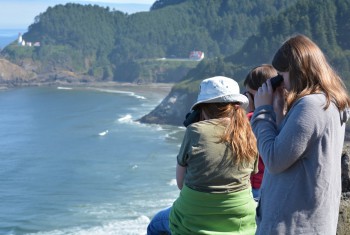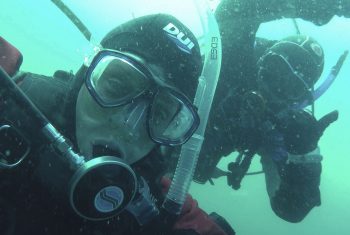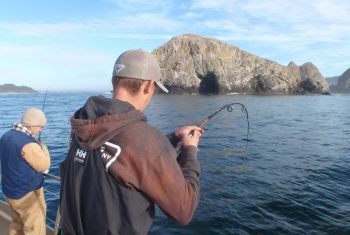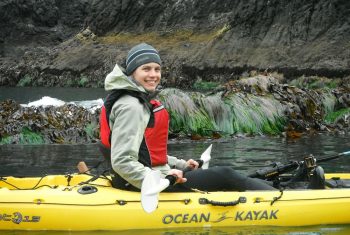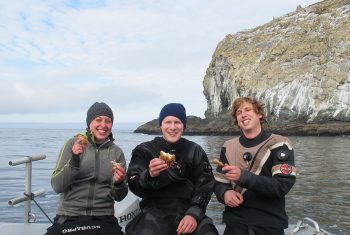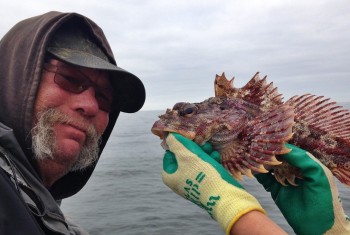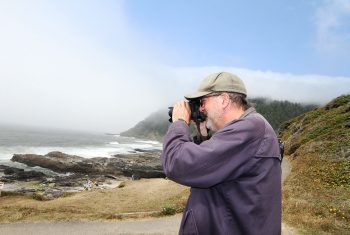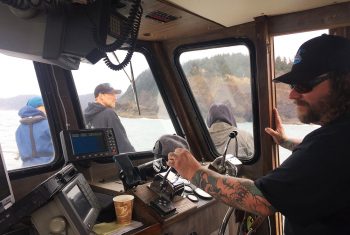UNDERSTANDING SOCIAL DYNAMICS AND WHY CONFLICTS ARISE
Human dimensions research helps us understand how social factors influence the ways that we interact with and manage the ocean. Oregon’s marine reserves provide a staging ground for studying the human social interactions that surround natural resource issues. This “natural laboratory” is valuable for understanding current and long-term impacts of conservation and management decisions on people and communities, as well as the impacts that demographic shifts, gentrification and socio-economic changes have on the lives of Oregonians.
Understanding these social dynamics, and why conflicts arise around decision making and human-environment interactions, can make the coast a more resilient place where biological and human communities can sustain themselves, even when faced with profound changes.
BUILDING COLLABORATIVE RELATIONSHIPS AND RESILIENT COMMUNITIES
Over the past several years, researchers studying people’s reactions to Oregon’s marine reserves have begun to understand the complex values and experiences that underpin how different communities interact with the ocean in different ways. Understanding and respecting these differences has great potential to help us work with different stakeholder groups and to build collaborative relationships within communities. In the end, strong relationships are critical to strong communities that can function effectively in the face of change, rather than wasting time and resources in conflict.
Many insights from this ongoing work center on the importance of recognizing how and why different stakeholders interact with and value the ocean in different ways.
Strong relationships are critical to strong communities that can function effectively in the face of change, rather than wasting time and resources in conflict.
WHO EXACTLY IS A STAKEHOLDER?
Oregon’s marine reserve system is built, in part, around the idea that the ocean is a public good that is held in trust by the state for the common benefit of the people of Oregon. On the other hand, there is growing awareness that conservation without local stakeholder buy-in is unsuccessful.
Recent human dimensions research examines the different perspectives of people who interact with the ocean, and especially the experiences and opinions of coastal residents.
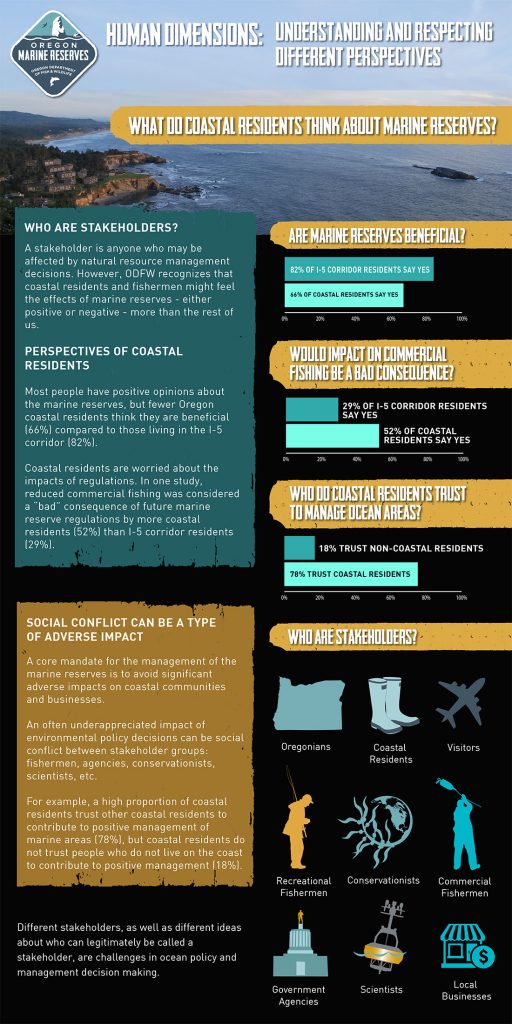 Check out this infographic, highlighting some of the initial findings from research being conducted by ODFW and research partners: What Do Coastal Residents Think About Marine Reserves?
Check out this infographic, highlighting some of the initial findings from research being conducted by ODFW and research partners: What Do Coastal Residents Think About Marine Reserves?
The question of “who is a stakeholder?” is important. For example, fishermen and other coastal residents have deep, personal claims, and livelihoods that depend on the ocean. On the other hand state waters are, in a legal sense, owned and protected by all Oregonians. Finding ways to move forward with these competing views of stakeholders is an area where human dimensions research can provide insights, aiding ocean policy and management decision making.
Stakeholders can also be people who experience an economic impact from marine reserves. Economic modeling of projected impacts, including increases in tourism or research dollars from marine reserves, are another way human dimensions research is helping ODFW and policy-makers understand who is affected by ocean policy and management decisions.
INTERESTED IN MORE HUMAN DIMENSIONS RESEARCH?
Find more infographics, reports, and publications posted in our Resource Library or explore the Human Dimensions Research page. Also, check out these past News stories:
